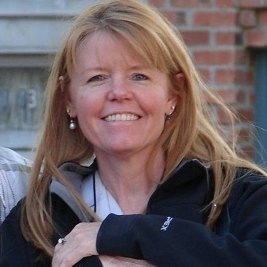 Recent literature reviews report that there are 65.7 million unpaid caregivers in the United States. This number reveals the explosion of older adults needing the care of family members. Unpaid caregivers account for 90 percent of the people providing long-term care. According to the National Alliance for Caregiving, 85 percent of the unpaid caregivers are taking care of a friend or relative: 49 percent are taking care of a parent, 15 percent are caring for friends and 14 percent are caring for a child. The average age of adults needing care is 75 years. More than half of the adults needing care have long-term physical conditions; 26 percent have some type of memory loss and 37 percent of these people have multiple conditions requiring hospitalization at least once a year. In 2015, it was estimated that one of five households in the U.S. are impacted by caregiving responsibilities.
Recent literature reviews report that there are 65.7 million unpaid caregivers in the United States. This number reveals the explosion of older adults needing the care of family members. Unpaid caregivers account for 90 percent of the people providing long-term care. According to the National Alliance for Caregiving, 85 percent of the unpaid caregivers are taking care of a friend or relative: 49 percent are taking care of a parent, 15 percent are caring for friends and 14 percent are caring for a child. The average age of adults needing care is 75 years. More than half of the adults needing care have long-term physical conditions; 26 percent have some type of memory loss and 37 percent of these people have multiple conditions requiring hospitalization at least once a year. In 2015, it was estimated that one of five households in the U.S. are impacted by caregiving responsibilities.
The Caregiver
The typical caregiver is required to give more than 20 hours of care each week and 37 percent of them are forced to reduce their work hours or even quit their job to care for an individual. The average out-of-pocket costs are more than $7,000 a year. Half of the surveyed caregivers indicated that their health had gotten worse because of caregiving and that their health had affected their ability to provide quality assistance. Surveys show that the stress involved in caregiving contributes to depression and negative health effects for the caregiver. Some caregivers report difficulty sleeping, reduction in healthy eating and exercise. A decline in the caregiver’s health often leads to institutionalization of the care recipient.
Support for Caregivers
Keeping caregivers healthy is a societal concern and experts urge caregivers to take breaks from caregiving to take care of their own health and well-being. To maintain good health, it is necessary to focus on a good diet, consistent exercise and finding a support group designed for caregivers. It is recommended that caregivers seek professional training if they feel the skills required are too stressful or demanding. It is also recommended that caregivers seek out reliable and routine respite care as part of the scheduled care situation. Respite care allows the caregiver to focus on his or her own needs – emotional and physical.
Community Involvement
The Institute of Medicine recommends that health care providers, community groups and other public and private entities make training available for unpaid caregivers. The community can offer care tips, stress reduction activities and information on local aid available to caregivers. Support individuals for the caregiver may be the hospital discharge planners, stress reduction programs, professional counselors and therapists. There is a national Eldercare Locator service, which offers information about the available local services. To find local support suggestions, visit the website at eldercare.gov.
Support During Medical Office Visits
The caregiver has the unique responsibility of providing safe transportation to and from medical appointments. The transportation may be complicated by the need of a wheelchair or other means of support to move to and from the vehicle. Once in the office, the insurance cards and other personal information must be available. During the visit, many times, the caregiver is the voice for the other individual. It is wise to write down concerns and have a list of all current medications prior to the visit so that you are able to focus on the discussion with the medical provider. Take pen and paper and write out instructions or any questionable phrases the provider uses. Ask questions when necessary and explain your support needs as well. The provider may have ideas for your benefit. We, as providers, respect the position you are in and want to offer as much support as possible.
Hearing and Health Care
When caring for an individual, it is important to understand the best way to communicate. If the person has a hearing loss, it will be more difficult to exchange ideas or instructions. Ask the primary care physician to order a hearing test if you are struggling to communicate with the person for whom you are caring. Once you understand the hearing ability, you can make accommodations that are logical and supportive for both of you. If hearing aids are already being worn, do you know how to clean them? Are the ears clear of wax? How are the batteries changed and how long do they last? The audiologist will review the care of hearing aids with you or update the settings in the hearing aids if requested. Hearing loss will cause confusion and add stress to an already stressful situation. If a person is not able to understand you, you may think there is more memory challenge than there actually is. FBN
By Dr. Karon Lynn, Au.D.





